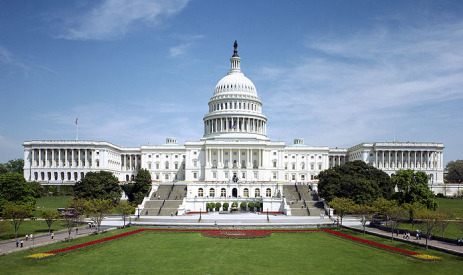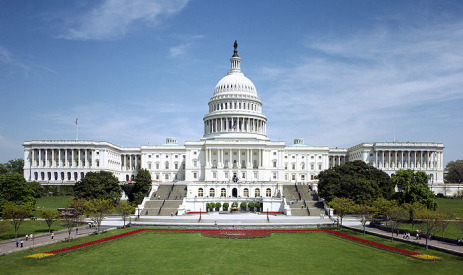
A bit of surprising news this morning: The economy actually shrank in the fourth quarter of 2012. It was only down by an annual rate of 0.1 percent, but it had been expected to grow by 1.1 percent. And it didn’t drop because of burdensome regulation or slow job growth. It dropped because of the Pentagon.
From The Washington Post:
[F]ederal defense spending fell at an astounding 22.2 percent annual rate in the quarter, which subtracted 1.28 percentage points from GDP growth. That was in part a reversal from the unusual 12.9 percent gain in the third quarter. But when the two quarters are averaged together, the defense sector was a drag on the economy in the second half of 2012 — and that’s before a “sequester” of automatic defense cuts goes into effect this year if Congress doesn’t act to avert it.
That “sequester” is the result of a poison pill that Congress administered to itself. Last year, knowing full well that Congress couldn’t be trusted to get anything done without some sort of threat hanging over its head, Congress decided to force Congress to act, passing a bill that created huge, automatic spending cuts unless Congress got its act together and figured out a budget package. Well, Congress was not smart enough to avoid Congress’ trap, so now those $1.2 trillion in budget cuts are slated to go into effect.
At the end of 2012, the Pentagon saw those cuts looming; this week, it announced 46,000 layoffs. If the full weight of the cuts go into effect, the damage to the economy could be severe.
Enter Senate Majority Leader Harry Reid (D-Nev.) with an idea. From Environment and Energy Daily:
Reid said Senate Democrats would discuss their plan to deal with the looming cuts known as “sequestration” at their party retreat next week. But during his weekly media briefing yesterday, he hinted that perennial efforts to eliminate tax preferences for oil and gas companies could offset some of the cuts. Rather than slash spending, Reid said Democrats were coalescing around an approach that would “pay for” the sequester with additional revenue. …
But Democrats in Congress and President Obama have previously proposed eliminating about $4 billion per year in permanent tax incentives claimed by the oil industry, such as the so-called Section 199 domestic manufacturing tax break and the “intangible drilling costs” deduction. The push has been expected to resume as part of this year’s budget battles.
The first thing I’ll note is that $4 billion is a little bit less than $1.2 trillion, so some other measures might need to be implemented. The second thing I’ll note is that cutting those tax incentives for the oil and gas industry is maybe the most obvious and theoretically simple budget cut that has ever existed in the history of this great Republic, and yet somehow, time after time, it doesn’t happen. I understand that members of Congress from both sides of the aisle would rather not antagonize a powerful and wealthy industry. But it’s so obviously the right decision and the arguments against it are so obviously weak — it will damage Exxon’s profits? it’s too small to make any difference? — that it’s utterly baffling that so little progress has been made.
Reid is tying two different issues together for the sake of playing politics. Allowing the sequester to move forward is a bad idea, as this morning’s numbers showed. Continuing to hand $4 billion in incentives to oil companies is a bad idea, as the entire recent history of the United States has shown. The proper course of action on both of these things is so obvious as to induce headaches.
Then, it is also obvious that writing massive cuts into law to try and force yourself to act on avoiding massive cuts is stupid. And so here we are.
Update: Right as we published this story, the White House piled onto the idea:
“The idea that you need to subsidize an industry that has enjoyed record profits — that taxpayers have to subsidize it — just doesn’t make sense in a time when we have to make choices about how best to use our resources,” White House spokesman Jay Carney said during a Wednesday news conference.
Making it more likely that an end to oil subsidies will be a negotiating chip for a unified Democratic push moving forward — as it has been before.



